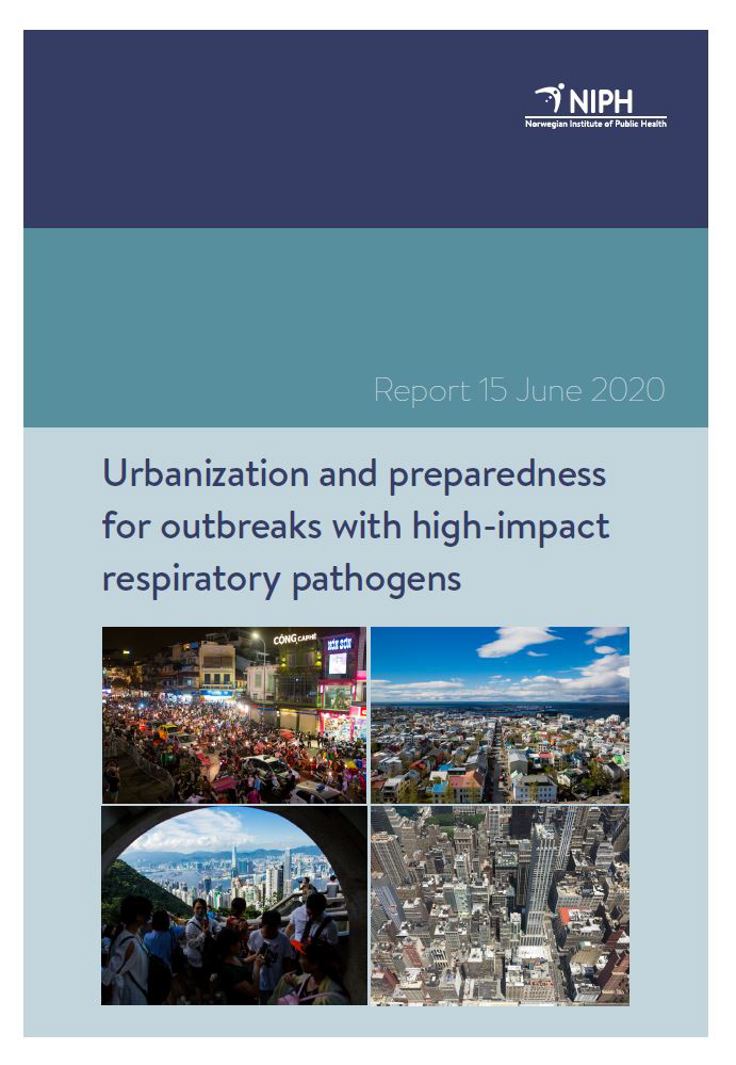Urbanization and preparedness for outbreaks with high-impact respiratory pathogens
Report
|Published
Epidemics in urban environments present public health challenges that affect local, national and global health security as much as having a sizeable impact on society and the economy.
Urban areas are heterogeneous and therefore implementation of the recommendations of this report will be determined by a city’s available resources, current preparedness, as well as adjusting them to local needs and characteristics. The recommendations are based on available literature, experiences from previous outbreaks, the current COVID-19 outbreak, NIPH’s own experts and feedback from reviewers.
The recommendations are given within the following areas:
- Multi-sectoral approach, including financial, political and governance research during an emerging outbreak
- Access to health care
- Non-pharmaceutical interventions (NPI)
- Infection prevention and control
- Outbreak surveillance
- Laboratory preparedness
- Mass vaccination plans
- Communicating with the population in a health crisis
- Modelling the outbreak
- Research during an emerging outbreak
In addition, the report makes the following recommendations to the World Health Organization:
- Recommendations for urban preparedness should be developed in the years to come, including specific tools and guidelines.
- IHR Monitoring and Evaluation Framework should consider including urban preparedness.
- The Joint External Evaluations should integrate indicators that would measure subnational capacities, including in urban settings.
- Set up collaboration networks between megacities to share experiences, data and tools in order to prepare preparedness plans.


